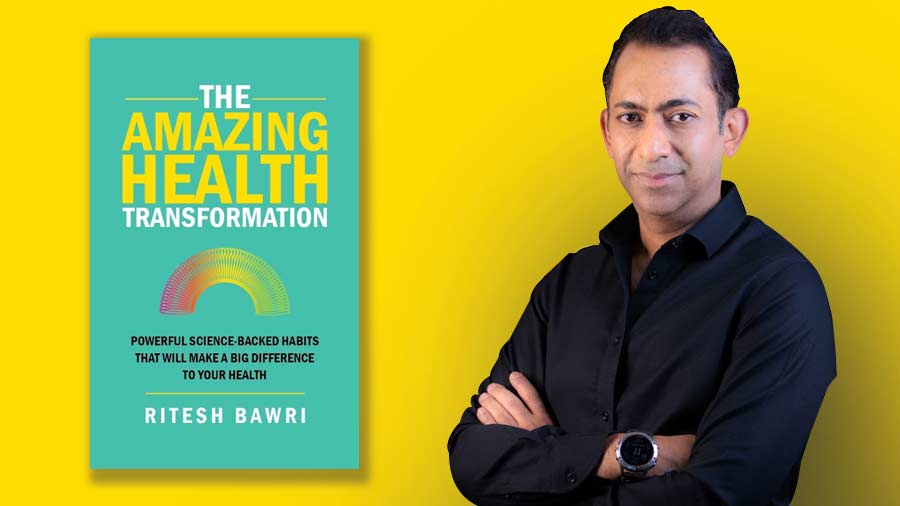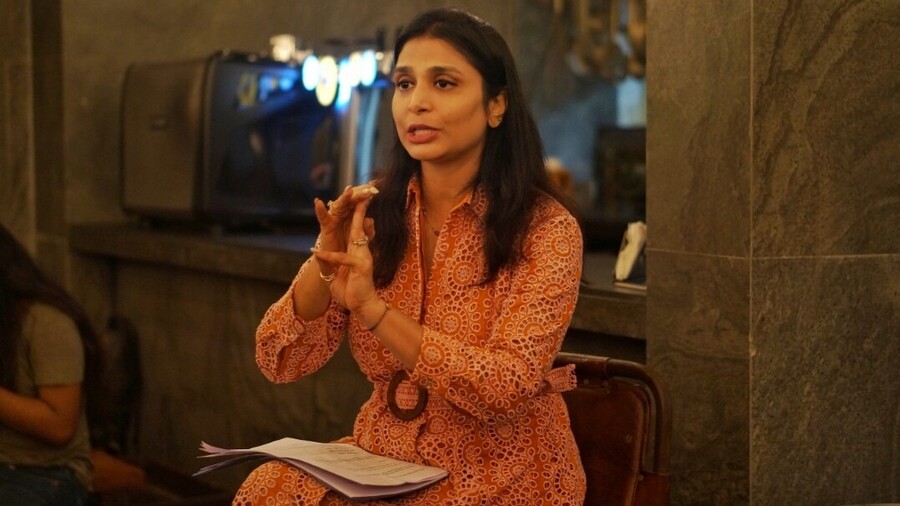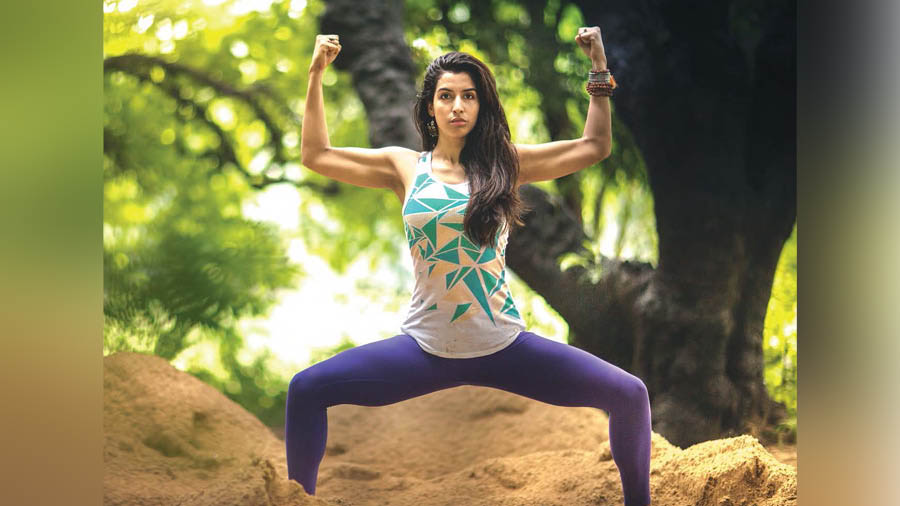In a parallel universe, Ritesh Bawri should have been dead by now. The man who has “cheated death” 13 times over, surviving everything from rooftop jumps to car crashes to air disasters, came closest to meeting a premature end in 2014, when he was the CEO of a thriving cement business. Driven by success, he chose to neglect his health until he was on the cusp. In the end, a conversation saved him and turned his life around.
Today, Ritesh is in charge of Breathe Again, where he, along with his wife Dimple, are turning thousands of lives around with the promise of “reclaiming health and reclaiming life”. Having read more than 700 books on health and wellness, Ritesh has recently written his first one, The Amazing Health Transformation, which outlines and explains a series of “science-backed habits that will make a big difference to your health”.
My Kolkata caught up with Ritesh at Hindustan Park’s Sienna Cafe to discuss his book, his journey, his fitness tips and more. Edited excerpts from the conversation follow.
‘It almost felt more manly to lead a toxic life’
My Kolkata: Before we come to your book, tell us how your individual fitness journey began and what was the motivation behind starting your fitness platform, Breathe Again, in 2015?
Ritesh Bawri: Back in 2014, I was in California having dinner with someone (Ravi Ranjan, a friend of Malvika, Ritesh’s sister). And he said that if I’m not careful, I’ll be very likely to die soon. He then explained to me the symptoms I had and how I was certain to develop hypertension, cardiovascular diseases and Type 2 Diabetes. Talking to him for one hour changed me and I decided to get tested. I realised that I was wrong about neglecting my health and using my corporate life as a justification. It almost felt more manly to lead a toxic life, since I had convinced myself that such was the price of success. I had also bought into the idea that with age, wear and tear is inevitable. But, in fact, our bodies produce five million cells every minute, so we’re actually getting repaired all the time.
After my interaction with Ravi, my first objective was to lose weight, and I lost 28kg within three months. During that period, my hypertension, hyperacidity, asthma and insomnia all disappeared. Having worked on myself, I decided to cure my parents, both of whom were overweight and diabetic at the time. Once that happened, I was hooked. Creating a positive impact had never felt better. Dozens of people started coming to my house everyday for advice and tips, which is when a friend of mine told me that I should take this up seriously. That’s where Breathe Again started, with the intention of using knowledge to change lives.
‘At Breathe Again, we rely heavily on science and technology, but also on empathy’
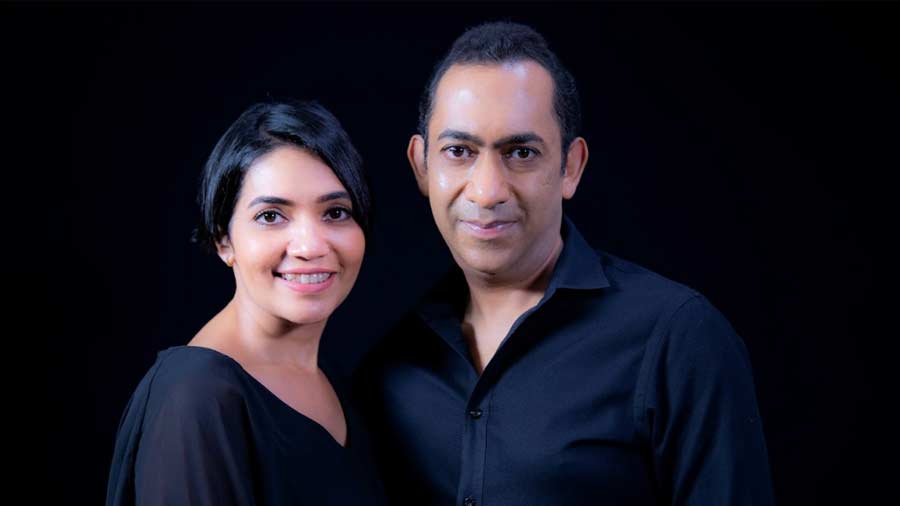
Dimple and Ritesh together run Breathe Again, which started in 2015 Courtesy Ritesh Bawri
How does Breathe Again’s programme work? Is your clientele only in India?
At Breathe Again, we’ve built a knowledge engine that has studied more than 100,000 ingredients and 40,000 diseases to understand what people should consume and what they shouldn’t. Our goal is to tell you how to manage your nutrition, exercise and sleep to attack root causes behind illnesses, not just symptoms. While the medical industry mostly looks at addressing symptoms, we want to dig deeper and understand where a symptom stems from and go after that. Over the years, we’ve dealt with all kinds of issues from diabetes and fatty liver to hypertension and fatigue and more, with a 95 per cent success rate. We rely heavily on science and technology, but also on empathy. We don’t believe in deprivation but moderation. For instance, if you love your machher jhol, we won’t ask you to stop eating it. We’ll simply advise you to regulate your portion size.
We have our main office in Ballygunge, but we largely operate virtually, which helps with our global presence. We have clients in 20 countries, with most of our overseas clientele coming from the US, UK, Vietnam, Singapore and Pakistan.
For men, body fat percentage should be below 20; for women, around 23 to 24 per cent
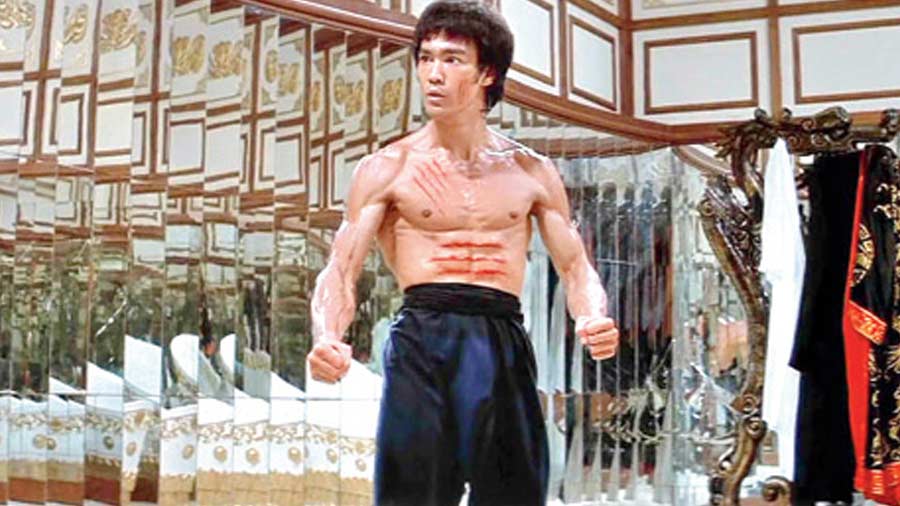
BMI would not do justice to someone like Bruce Lee, argues Ritesh TT Archives
Coming to your book, let us take up its different elements one by one. First, I want to ask you about body types. Is it true that there are fixed body types for everyone and these types determine weight loss?
I don’t believe in body types because, ultimately, weight gain or loss is about energy management. Yes, our genes do play a role. For example, we Indians have a tendency to accumulate fat in our bellies because of something called the “survival gene”. But more than body type, I pay more attention to body fat percentage. As a man, keeping your body fat percentage below 20 should be fine. For women, it’s around 23 to 24 per cent. At the same time, we must not get carried away when it comes to losing weight. It’s not a useful idea to shock your body into losing weight suddenly by eating half of what you usually do. The best way to lose weight is gradual, by slowly reducing your food intake, which allows the body to cope.
Is Body Mass Index (BMI), calculated by dividing a person’s weight in kilograms (or pounds) by the square root of their height in metres (or feet), inaccurate?
Yes, BMI’s all wrong, because it doesn’t take into account muscle weight. If you’re Bruce Lee, then your BMI would show you as overweight because it doesn’t factor in your muscles. But does that mean you wouldn’t want to be Bruce Lee?!
‘Exercise has very little to do with weight loss’
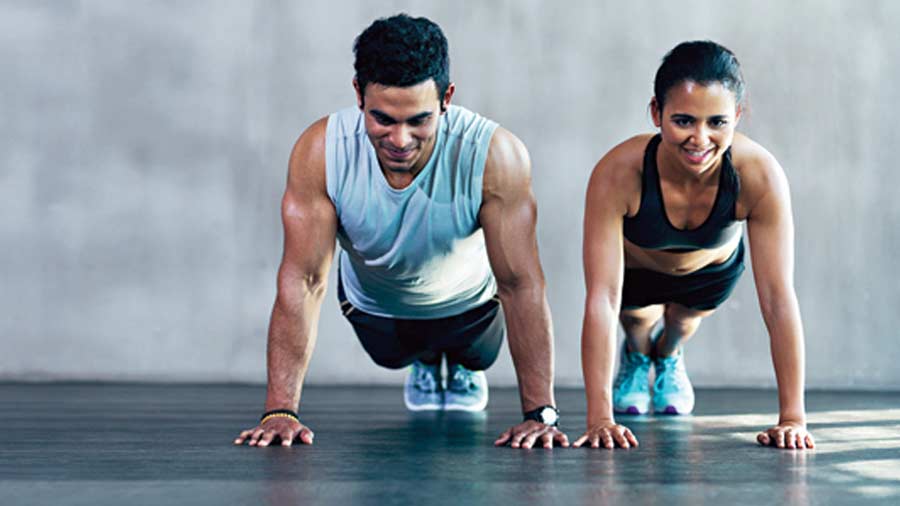
The main purpose of exercise is the maintenance of cells, says Ritesh
How much should we look to exercise daily? And what are the different types of workouts we should include?
Firstly, exercise has very little to do with weight loss. In fact, in many cases, exercise can increase your weight because you’re building muscles. The real purpose of exercise is the maintenance of cells. Secondly, exercise isn’t just about hitting the gym. Any kind of substantial movement qualifies as exercise. Having said that, there’s no definite amount of exercise you should do. The more, the better. But please bear in mind to start slow. If you go into a gym and spend 45 minutes working out on your first day, you’ll hate it. You’ll have spasms and you won’t want to come back. So, start off with a 10-minute routine, maybe thrice a week, and gradually increase the time and the intensity.
You should do a combination of several things – some weight training for the muscles and the bones, cardio for the heart and the lungs, exercises for the joints and flexibility drills or yoga to keep the body supple.
‘Our natural sleep cycle is between 8pm and 4am’
Let’s move on to the topic of sleep. When should we sleep and how much of it is enough?
Most humans need eight hours of sleep to function optimally. Our natural sleep cycle, as proven in experiments, is between 8pm and 4am. In the absence of light and external stimulation, our bodies would revert to this cycle eventually. But more than when we sleep, it’s crucial that we get our eight hours whenever we do. While sleeping, the body repairs and recovers. If we don’t get enough sleep, plaques (proteins clumping together between neurons to disrupt cell functions) form in the brain and our memory and motor skills are affected.
What about those who sleep during the afternoon or take naps throughout the day?
Sleeping in the afternoon can be healthy because it allows the body more rest. But make sure to sleep for either 10 minutes as a power nap or complete one sleep cycle of 90 minutes. Otherwise, it’s of little use. No matter what your sleep routine, if you don’t sleep close to eight hours at night, your body won’t repair the way it needs to. Which is why it’s important to get rid of the notion that sleeping isn’t cool.
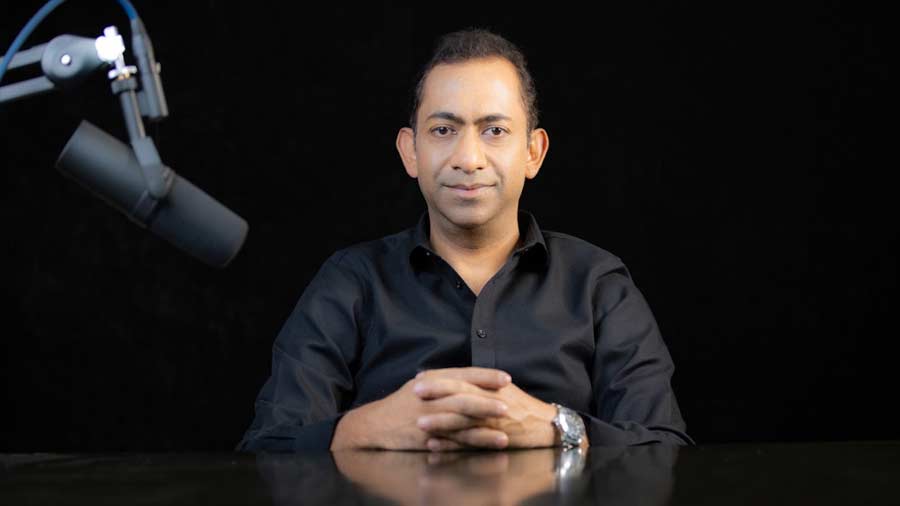
A balanced body prevents inflammations, which, in turn, prevents illnesses, argues Ritesh Courtesy Ritesh Bawri
Your book mentions the importance of homeostasis. What is it and how does it matter?
Homeostasis has been my greatest learning so far. Essentially, it means keeping the body in equilibrium so that it’s balanced and capable of tolerance. In the absence of homeostasis, inflammations occur, which are the mother of all diseases. Apart from homeostasis, I’d also like to mention allostasis, which basically means stressing the body a little bit every now and then so that it adapts over long periods of time.
‘Social interactions should ideally be few and deep rather than many and shallow’
A vital component of health are our social networks and connections. But so much of that happens virtually today in the age of social media. Are our virtual relationships affecting our health negatively?
We live in an attention economy and are overstimulated most of the time. This overstimulation, be it through social media or otherwise, contributes to stress. And stress isn’t just mental or emotional, it’s physical. Constant stress in the body leads to chronic diseases and everything falls out of balance. A good way to combat stress is to give and receive pheromones during social interactions, which should ideally be few and deep rather than many and shallow.
‘Fats are among the healthiest things you can eat… avocado is overrated’

Avocado’s benefits can also be obtained through Bilona ghee TT Archives
There was a time when we were told that fats are killers. Now we are told that sugar is actually more harmful. Some are also warning against consuming too much salt. What do we actually need to watch out for in our regular diets?
Whatever food items occur naturally or are cooked naturally can be consumed. But we should be careful of not eating too much or too little of anything. Both fats and carbohydrates are good for our bodies, even though so many people tend to avoid them altogether. In fact, fats are among the healthiest things you can eat, since they help in building cell walls.
Can you identify a few underrated food items when it comes to a regular, healthy diet and a few overrated ones?
All kinds of spices are underrated, from herbs to salt. Ghee is very good for us, even though it’s been vilified a lot. Home-made or traditionally produced mustard oil is magic.
For overrated ones, I must say that drinking too much water does no good. About six glasses (roughly two litres) of intake everyday is fine, and this includes the water present in food and other beverages. In the case of exercise, you’ll need more, though. Supplements shouldn’t be encouraged too much. Then there’s avocado, which has Omega 3, but so does Bilona ghee.
Finally, let’s come to the topic of mental health. What do you have to say to those who believe the idea of mental health is a myth? Also, any suggestions on how to best take care of our minds in these times?
I’ve met around 10,000 people in my life so far. And I haven’t seen anyone who has no issues or problems. When talking about mental health, it’s important to identify the factors that contribute directly to it. Food matters a lot, because it has a direct bearing on our mood through chemicals and hormones. Sleep is also essential. And most importantly, it’s about understanding and accepting life as it is. None of us can avoid problems in life, which may or may not be fixed over time. But what we can ensure is good health and good living, which are far easier to fix.
